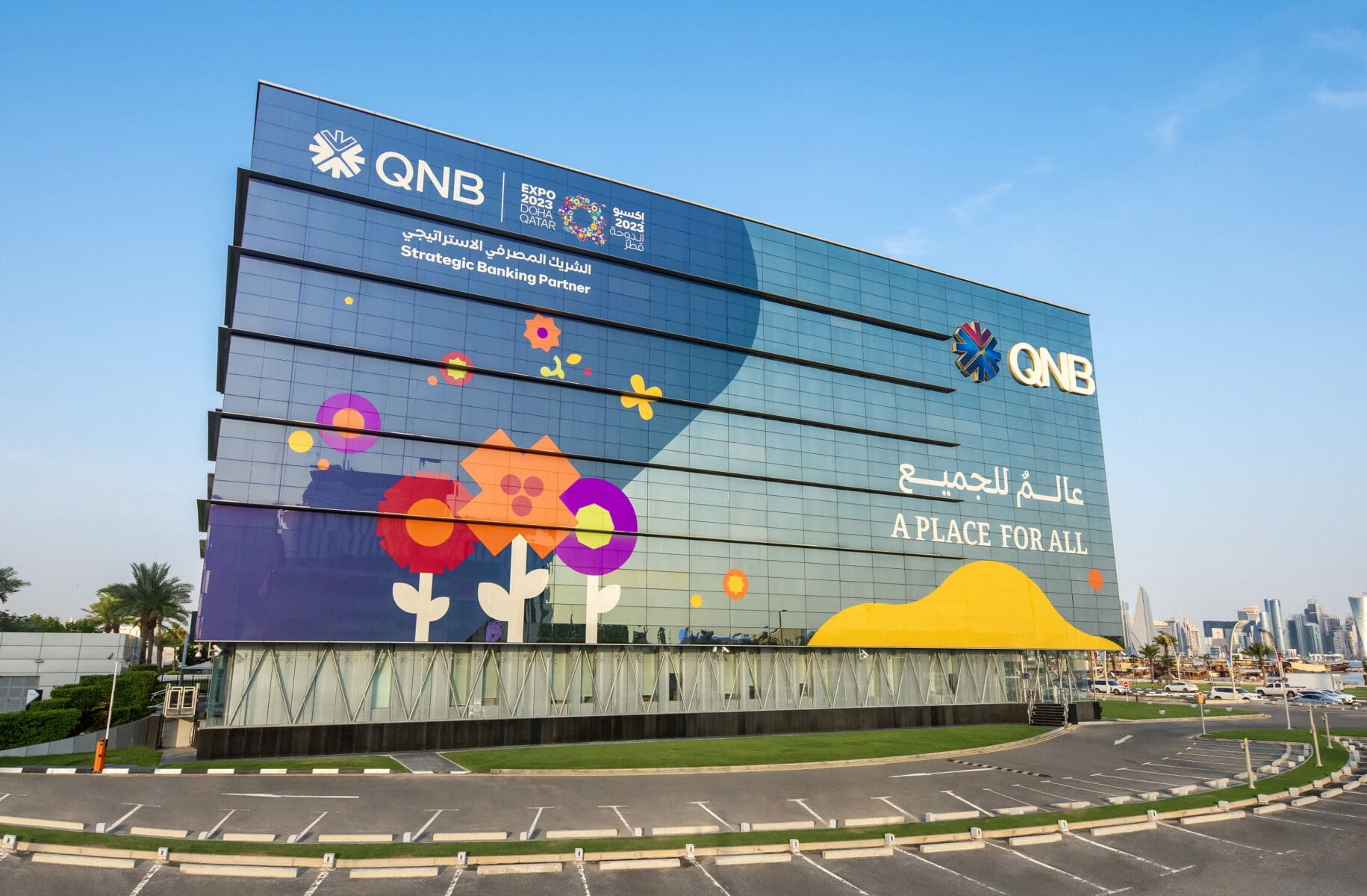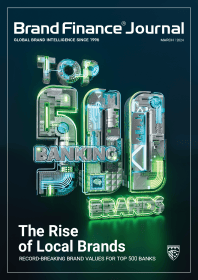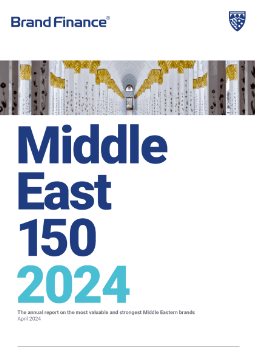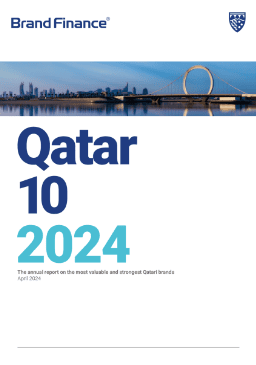This article was originally published in the Brand Finance Banking 500 Report.
Qatar National Bank (QNB) has increased its brand value by 10% to USD8.4 billion, as well as increasing its brand strength index (BSI) score to 85.9/100 and maintaining its AAA rating. As the region's most valuable banking brand, its growth is fuelled by robust financial performance and strategic market positioning.
Interview with Heba Ali Al-Tamimi.

What advantages does QNB's international presence bring both locally and abroad?
QNB's strategic international presence is a cornerstone of its success, providing a dual advantage that extends its influence and impact both locally and abroad. On the domestic front, the bank fortifies its position by harnessing global insights, a testament to its commitment to staying at the forefront of the financial industry's ever-evolving landscape. This not only enhances the quality and range of financial services offered but also contributes significantly to local economic growth.
Internationally, QNB's footprint transcends borders, playing a pivotal role in fostering cross-border collaborations. The bank's international reach is not merely an expansion tactic; it is a deliberate effort to cultivate a network that goes beyond geographical boundaries. This broadens QNB's market reach, enabling it to navigate diverse economic environments and adapt to varying customer needs and preferences.
The bank's ability to operate seamlessly across different markets contributes not only to its own growth but also to the economic interconnectivity of the regions, it serves. QNB becomes a catalyst for economic collaboration, facilitating the flow of capital, knowledge, and opportunities on a global scale.
What role does sustainability play in QNB's brand strategy?
We recognise the importance of ESG and have therefore embedded the topic of sustainability in our purpose and Group-wide strategy. Our purpose is to promote prosperity and sustainable growth across the market we serve. This captures and reflects our efforts from a social and environmental perspective. Our strategy therefore fully integrates the topic of E, S and G across our business and operating model.
Our sustainability approach, commitments, and ambitions align with international standards and initiatives, including the United Nations Global Compact (UNGC) and UN Sustainable Development Goals (UNSDGs), amongst many others.
Enabled by our Group Sustainability Policy and framework, the Bank continues to deliver sustainable financial performance through identifying new opportunities and reducing environmental and social (E&S) risks. Underpinned by three pillars – Sustainable finance, Sustainable operations, and Beyond banking – it reflects our holistic approach to addressing a range of material ESG topics across our network, to deliver positive impact and to ensure a sustainable future for all.
As a bank, the most impactful way to address the topic of sustainability is through our financing activities. To deliver meaningful impact and to cater for our customer’s increasing demand to support ESG values, we have integrated sustainable products and services as part of our overall value proposition and offering. Today, we are recognised as a leader and pioneer in ESG financing, both in Qatar and the wider region.
Looking forward, QNB's commitment to sustainability aligns seamlessly with its long-term vision. The bank envisions a future where financial success is intertwined with environmental stewardship and social responsibility. This forward-thinking approach not only future-proofs QNB but also positions it as a leader in the evolving landscape of responsible banking.
What are the key trends you envisage as being the most important in the banking industry over the next three years and how can brands navigate or capitalize on those?
- Digital Transformation: Banks will continue to invest in digital channels and technologies to enhance customer experience and streamline operations. Brands can capitalise on this trend by offering user-friendly mobile apps, personalised digital services, and seamless omnichannel experiences.
- Open Banking: Open banking regulations will continue to drive collaboration and innovation within the industry, enabling banks to partner with fintechs and third-party providers to offer new products and services. Brands can navigate this trend by forging strategic partnerships, leveraging APIs, and creating ecosystems that offer comprehensive financial solutions.
- Cybersecurity: With the increasing frequency and sophistication of cyber threats, cybersecurity will remain a top priority for banks. Brands should invest in robust cybersecurity measures, including advanced encryption, multi-factor authentication, and employee training, to safeguard customer data and maintain trust.
- Sustainability and ESG Investing: There is a growing emphasis on environmental, social, and governance (ESG) factors in investment decisions. Banks can capitalize on this trend by offering sustainable investment products, promoting ESG criteria in lending practices, and adopting green banking initiatives to attract socially conscious customers.



